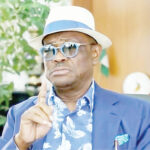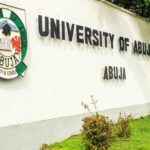Sudan and Algeria can easily evoke memories of the Tunisian and Egyptian revolutions of 2010 and 2011. Like their neighbours, Sudanese and Algerian protesters managed to overthrow their autocratic leaders after decades of rule, in a matter of months, and without a single shot fired.
Marching, chanting, resisting and daring, the people of Sudan and Algeria pressed on with their calls for freedom and democracy until they were able to disarm the old guard – politicians and generals alike – and force them to acquiesce to their initial demands.
It may still be too early to judge, but so far it looks like these latecomers have learned important lessons from Arab as well as other revolutions. In fact, Sudan and Algeria may well be able to deter the counter-revolution and avert the dangers of civil war. The signs are hopeful.
So far, revolutionaries in Sudan and Algeria are still firmly on the path of non-violence, a la Tunisia and Egypt.
Peaceful protest has proven the least costly and the most constructive among all possible strategies and scenarios, not only to confront repression, but also to pave the way for democracy. Indeed, non-violent revolutions are most capable of splitting the regime’s rank and file and straining its legitimacy.
If history is any guide, violent revolts tend to coalesce and galvanise a dictatorship’s base, making it harder to bring down. They also produce alternative leadership that is no less violent than the repressive regimes they aim to overthrow.
But for civil disobedience, boycott, demonstrations and other forms of non-violent strategies to work, they require popular mobilisation. In Algeria and Sudan, people of different ethnic and religious backgrounds, young and old, women and men, secular and religious came together in their demand for freedom and better living.
Such inclusion of different elements of society prevents the regime from taking advantage of any potential splits or feelings of alienation, as has happened in both Syria and Egypt, in order to discredit the revolution and justify repression against its supporters.
Condemning or alienating those middle- and low-ranking bureaucrats or government employees, including teachers and policemen, is counterproductive and harmful; attracting and incorporating them in the revolution can contribute to its potential success.
A greater popular mobilisation behind the revolution ensures greater participation in the ensuing democratic process, which guarantees its long-term consolidation.
That may take time, lots of time. A revolution is a thrilling, liberating rush of social and political adrenaline, but even with broad support, its long-term success depends on consistency and perseverance. The pressure can’t ease just because the despot is gone. What must come next is a slow, tedious, and deliberate process of organisation, negotiation and reconciliation.
Without it, any revolution ends in the dustbins of history.
For, if people return home to business-as-usual after the fall of an autocrat, they allow the old regime to reconstitute itself in one form or another.
Changing an autocrat might be hard; changing the system behind him is even harder. The important question for all revolutions is not who but what comes after.
The Algerian and Sudanese people seem well aware of that. They celebrated the bloodless ouster of Bouteflika and al-Bashir, but they did so knowing well that this was only the beginning of a very long and fraught process.
The swift introduction of substitute leaders from within the old system in both countries underlined the need for more comprehensive thinking about the way forward.
In both Algeria and Sudan, the protesters know they need to get the military on their side and on their terms, like in Tunisia, in order to avoid an Egypt-like scenario.
Tunisia’s experience also teaches that protests must go on until a new transparent system of accountability is in place. This means knowing not only whom you oppose, but also what you want both in the short and long term. It’s rather easy to be against corrupt repressive leaders, but much harder to articulate and implement a vision for a better future.
This brings us to the old chicken-and-egg riddle: What comes first, democracy or democrats? For how is it possible to nurture democracy without democrats, or democrats without democracy?
The simple answer is: They come in tandem. It takes experience and courage to foster them.
Democracy is no panacea. It is a lot of work and results can be mixed, sometimes undemocratic, even after decades and centuries of democratic rule. Just look at the rise of fascist anti-democratic right-wing parties in a number of leading democracies.
And in the Arab world, liberal democracy, the truest form of democracy, may indeed be seen as a controversial idea or a foreign import by traditional and conservative portions of society.
All of this means that there is a need for open debate, for trial and error, which takes time – lots of time. And that is why priority needs to be given to a gradual transition over immediate elections – something the revolutionaries of both Sudan and Algeria seem to insist on.
They demand a transition into civilian, not military rule – one that prepares the political and legal frameworks to hold free and fair elections.
Rushing to the polls immediately is certain to privilege older, more organised parties and fracture the newly formed groups driving the revolution, as they compete for power. Egypt is a good example of how the ancien regime can exploit post-election tensions between liberal secularist and conservative Islamists to mount a coup d’etat against an elected president.
This does not mean open-ended transition that drags on endlessly.
As the new Sudanese Freedom and Change alliance, a public committee representing the demands of the protesters, proposes a four-year period may be suitable to stabilise the country politically and economically and chart a new way forward.
Algeria seems to follow suit, as it has rejected the announcement of presidential elections in July under the same old rules. Now that Algerian judges have decided to boycott supervising such premature elections, the pressure is building up for their postponement until the country is ready.
Meanwhile, another crucial process that has to take place is managing expectations. Like their neighbours before them, Algerians and Sudanese who have risked a lot in the struggle for regime change, will come to expect a lot.
The Sudanese who revolted against al-Bashir for the lack of bread and fuel, will expect – indeed, demand – solutions not slogans from the transitional government.
No doubt, many confuse democracy with prosperity in the West. Democracy may facilitate creativity, innovation and entrepreneurship, but it does not guarantee a higher standard of living, at least not in the short term.
And in a heavily indebted, underdeveloped nation with few national sources of income, freedom and democracy may generate more anger than wealth.
So far developments in Sudan and Algeria have gone in the right direction, but there is also a lot that can still go wrong, considering the road to democracy is full of traps and pitfalls.
If recent “Arab Spring” experiences are anything to go by, the worst is yet to come, especially, as the generals continue to vie for control.
But the long silenced Sudanese and Algerians majorities and their invisible elites have defied all the scare campaigns that warned of a descent into chaos.
They have rejected all forms of domestic and foreign intervention, especially military intervention, to avoid the destruction seen in Libya, Syria and Yemen.
In short, they prefer to be self-reliant, buoyantly industrious and innovative revolutionaries.
And it sure takes innovation to confront violence with non-violence, to protest loudly and negotiate calmly, to raise the stakes and reduce the risks, to elevate the aspirations and limit the expectations. It will also take more creativity to continue to use accessible means to realise inaccessible ends.
The art of revolution entails deep societal transformation to ensure the sustainability and durability of political transformation.
Mr. Bishara is the senior political analyst with Al Jazeera.

 Join Daily Trust WhatsApp Community For Quick Access To News and Happenings Around You.
Join Daily Trust WhatsApp Community For Quick Access To News and Happenings Around You.


